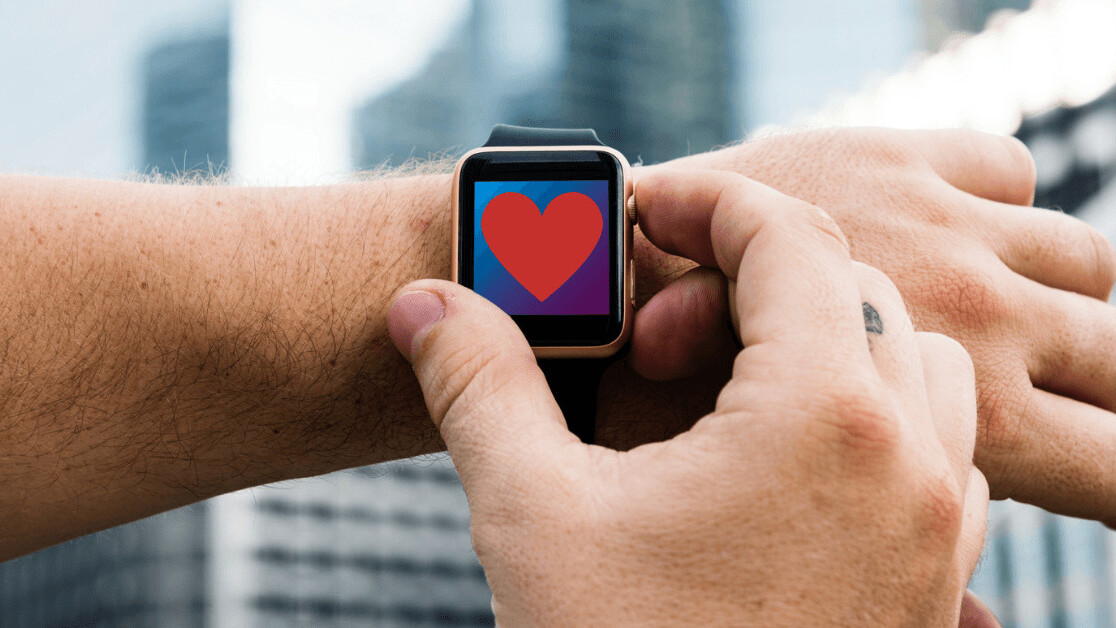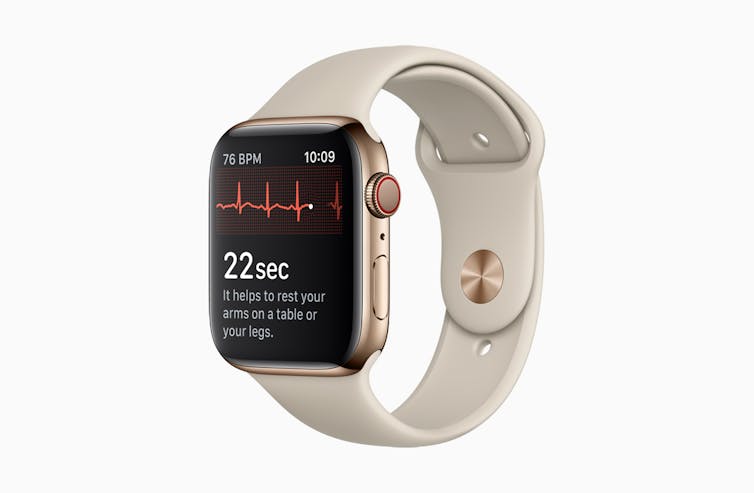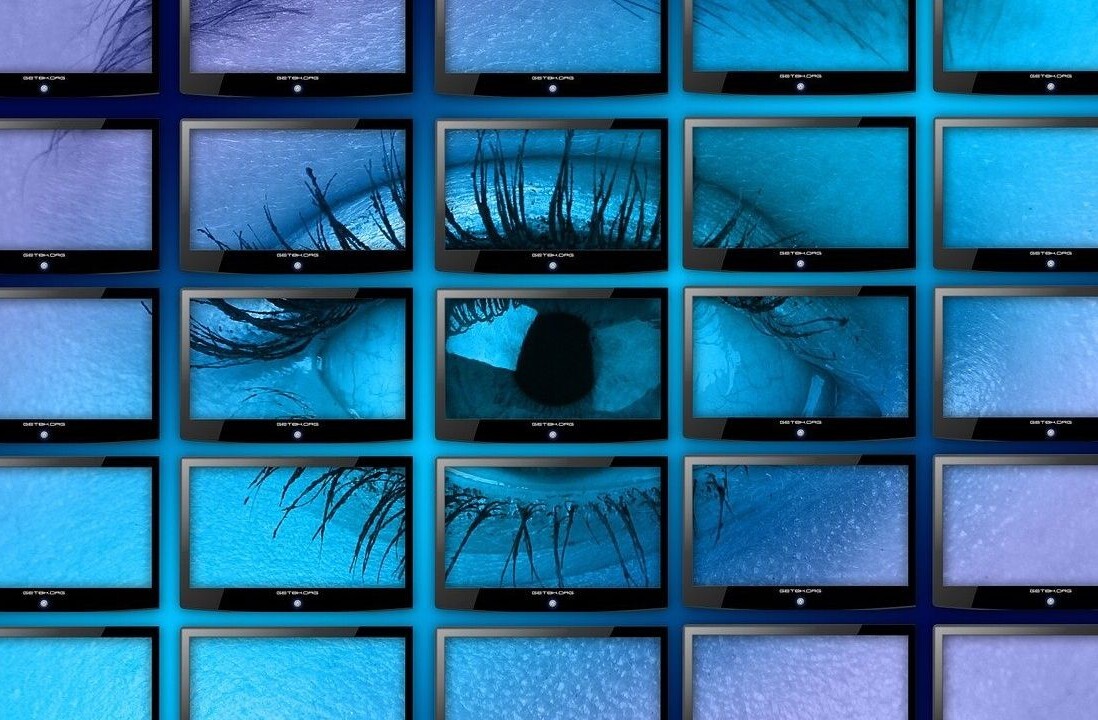
Leaked details of the new iPhone models were quickly relegated to second tier headlines after Apple’s latest product announcement. More people seem to be excited about the fact that the new Apple Watch will come with a built-in heart monitoring electrocardiogram (ECG) function.
An ECG is a simple test that can be used to check your heart’s rhythm and electrical activity, designed to detect any underlying issues.
The Apple Watch 4 will be the first mainstream wearable gadget to integrate this kind of medical diagnostic technology. (Other devices such as the Fitbit typically measure blood flow by shining a light through the skin. This should be an exciting breakthrough, but Apple’s revelation has been met with a mixed reception.
There isn’t yet enough evidence to show that using an ECG in general to screen people for cardiovascular diseases ultimately makes them healthier. In fact, it’s not recommended for screening people who are at low risk of developing problems because it could produce false positive results (indicating a problem where none really exists).
This can then lead healthy people to seek unnecessary, invasive and potentially harmful treatments, at a cost to the health service provider, as well as producing increased anxiety.
For those who are at high risk of disease, ECG results might suggest medical intervention when lifestyle changes could actually be more beneficial. But does this really mean the technology shouldn’t be made more widely available?
It would be naive to assume that everyone who is at risk of heart problems knows, never mind consults with a doctor, about it. Often, people don’t realize until it is too late and they need emergency treatment and lengthy retrospective investigation – or, at worse, they die.
To ignore the current digital health movement, and surging enthusiasm for it among early adopters of devices, health enthusiasts and growing numbers of people more generally would also be foolish.
The industry is booming. The growing numbers paying to monitor their health with fitness trackers and smart watches has shown how engaged and motivated people can become.
We shouldn’t be denying people opportunities to take greater responsibility for their health, particularly as health services come under growing pressure from an aging and increasingly ill population.
The physical risks associated with performing ECGs are minimal. Sensors attached to the skin are used to detect the electrical signals produced by your heart each time it beats. It is quick, safe and painless.

We shouldn’t ignore concerns that an ECG test in a commercially available watch could encourage many people to make additional trips to the doctor when they have recorded any anomalous activity.
A rush of gadget-adorned people descending on clinics demanding services is a worry. But many people already self-diagnose conditions or agonize about symptoms unnecessarily, often caused by using the internet and other technology.
Those who do use the Apple Watch ECG may well include large numbers of “worried well”. But the impact of uncontrolled use of ECG technology seems likely to be limited for the moment, especially as many people will still simply be unable to afford it.
If ECG is added to the list of readily available health technology applications, it will be little different from enabling people to detect their pulses, count their steps, track their periods and analyze their sleep. An Apple Watch ECG won’t be conducted under controlled conditions, but this is true of so many health consultations.
Personal health tech is already common
Medical staff now give out many interventions that can be performed independently at home. This includes some self-tracking technologies and sensitive diagnostic tests, such as those for sexual health and bowel screening. In some places, you can even swap the GP’s surgery for a smartphone app.
While accuracy may be an issue with the Apple Watch ECG, the same is true for ECG tests performed in clinics and interpreted by professionals, according to many papers published on this topic. Of course, technologies can always be improved, but waiting until a test is close to perfect isn’t necessarily the best way to use it.
Ultimately, we are living in a digital age and healthcare has so far been slow to revolutionize. We should be harnessing technology to improve healthcare.
Everyday ECG won’t replace medical care but might help people to spot important warning signs and seek expert opinion. The real-time data the device has already collected may then help inform a medical expert’s interpretation and diagnosis.
What we should really be thinking about is how we can widen appropriate access for this kind of technology to those who it would most benefit, so that it might identify more people at risk, earlier. This would help make health services more efficient, reduce waste and perhaps even save lives.
This article is republished from The Conversation by Heather May Morgan, Lecturer in Applied Health Sciences, University of Aberdeen under a Creative Commons license. Read the original article.
Get the TNW newsletter
Get the most important tech news in your inbox each week.





